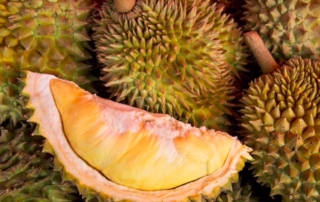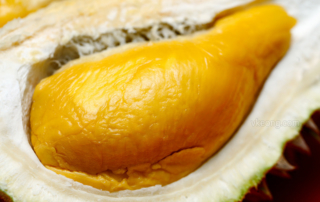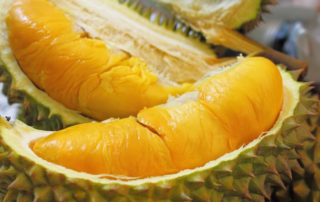Nutrition and Health Benefits of Eating Durian
- Durian is a strong blood cleanser and a powerful aphrodisiac.
- The roots and leaves of durian are used for preparing traditional medicines for curing fevers and jaundice.
- The decoction prepared from leaves and fruits, is helpful for treating swellings and skin diseases.
- The rind of durian is burned and the ash is consumed by women after childbirth.
- Due to the high levels of amino acid tryptophan, durian is known to alleviate anxiety, depression and insomnia.
- By raising levels of serotonin in the brain, it helps in creating feeling of happiness.
- It is highly useful in lowering cholesterol.
- It is a good muscle builder, due to its high content of soft protein.
- Durian is a good source of vitamin C that helps in developing resistance against infectious agents and scavenges harmful free radicals.
- It contains simple sugars like fructose and sucrose and some simple fats that replenish energy and revitalize the body instantly. Hence, durian is highly effective as a supplement food for underweight children.
- Apart from iron, lack of folate can also lead to a type of anemia called pernicious anemia. Durian, being a good source of folate, helps in producing normal red blood cells (RBC).
- Durian aids in regulating blood sugar level, due to its rich manganese content.
- By promoting a normal appetite, durian helps in producing hydrochloric acid in the stomach, thereby assisting in proper digestion of food.
- Packed with nutrients, durian helps in increasing energy, endurance, mental clarity and cellular health.
- It enhances libido, thereby revitalizing the desire for sexual intimacy.
Caution of Eating Durian
- Durian fruit, when combined with alcohol, can trigger side effects such as strong gastro spasms and explosive flatulence.
Cooking Tips
- Durian is used to flavor a wide variety of sweet edibles, such as traditional Malay candy, ice kachang, dodol, rose biscuits, etc.
- It is also used for preparing ice cream, milk shakes, Yule logs and cappuccino.

















